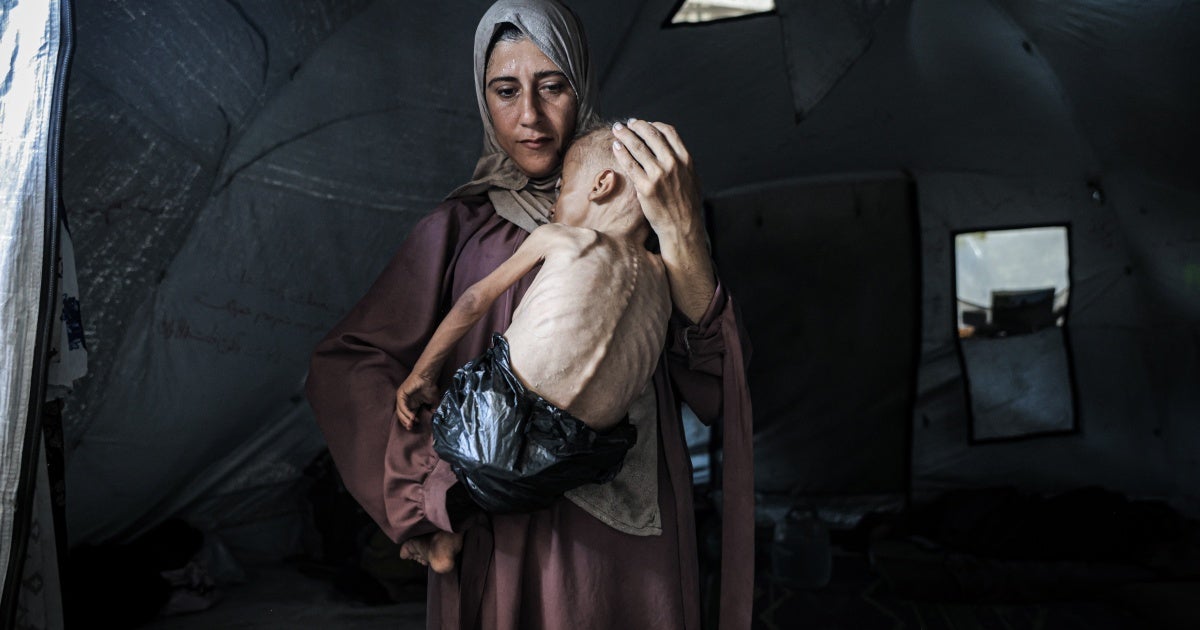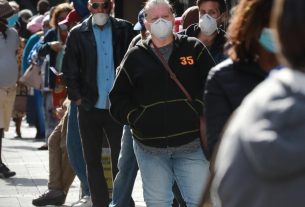In July, major news organizations published the image of 18-month-old Muhammad Zakariya Ayyoub al-Matouq, a Palestinian child so emaciated that his bones protruded through his back, while his mom cradled him in her arms. Instead of a diaper, he wore a black plastic bag.
Some online commentators have sought to downplay the image’s power by pointing to a pre-existing medical condition. But Muhammad is starving as the result of Israel’s use of starvation of civilians as a weapon of war. This is a war crime that is affecting the entire population and, based on my research, is inflicting particularly profound suffering on children with disabilities like Muhammad.
Humanitarian workers told me that restrictions on aid prevent them from bringing in special food that some children with disabilities or medical conditions need, while medical workers warned that children with disabilities are less likely to get care due to the Israeli government’s systematic assault on Gaza’s health care infrastructure.
In mid-August, in Geneva, I joined the United Nations Committee on the Rights of Persons with Disabilities for its session focused on the Occupied Palestinian Territory. Under the Convention on the Rights of Persons with Disabilities, governments are required to protect people with disabilities in situations of risks, including armed conflicts. The messagefrom disability groups was clear: governments need to press Israeli authorities to allow unimpeded, disability-inclusive humanitarian access and not leave children like Muhammad to suffer the consequences of intentional starvation.
There are countless examples of Palestinian children with disabilities thriving with adequate nutrition and health care. In just one example, 6-year-old Fadi al-Zant, who has cystic fibrosis and was severely malnourished, was evacuated to the United States from Gaza last year and survived. Osman Shahin, a 16-year-old boy with cerebral palsy who had lost 7 kilograms, regained weight after his family left Gaza for Bosnia.
But Muhammed and other children in Gaza do not have that chance. Between April and mid-July alone, more than 20,000 children in Gaza were hospitalized for acute malnourishment, 3,000 of them severely. Starvation of civilians is not an accident of war, it is a deliberate policy.
Muhammad’s image should move world leaders to use all their leverage with Israel, including an arms embargo and targeted sanctions, to stop Israeli authorities’ mass starvation policy. Muhammad’s disability does not make his starvation less cruel or unlawful; it makes it all the more urgent for countries to act now.



